to reduce our impact.
Protecting air, water, and people isn’t just the right thing to do. It’s an opportunity to invest in the long-term health of our region, affirm our shared values, and grow new sectors of our economy now and into the future.
Our Environmental Commitment
Read our annual report to dig into how the Port demonstrates leadership and proactively works to protect our environment.
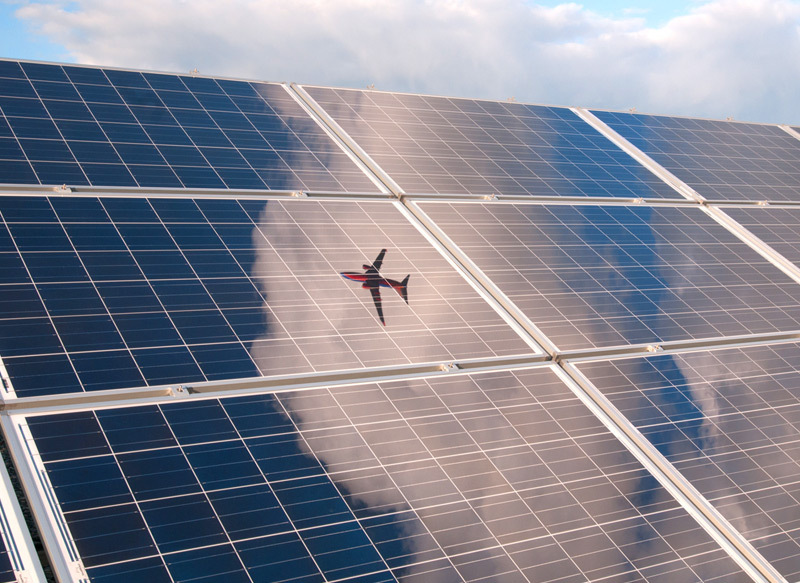
Air Quality and Energy
We’re implementing a comprehensive program to address air quality. From building infrastructure to support zero emissions equipment to cutting energy use and supporting renewable electricity generation, we continue to improve air quality and make progress toward our goal of net zero carbon emissions by 2050.
Learn about our collaborative work to bring sustainable aviation fuel to PDX See how we’re advancing the transition to unleaded aviation fuel
Pollution Prevention and Land Restoration
Moving people and cargo has environmental risk. That’s why we track pollutants to help prevent contamination—including taking action to address PFAS ahead of regulations. We’re also improving maintenance practices, such as switching to water-based paint for pavement striping. And we’re cleaning up past industrial contamination to improve the environment, protect public health, and support economic opportunity.
See how we’ve helped transform the site of a former aluminum smelter into a job center Check out our commitment to cleaning up the lower Willamette River
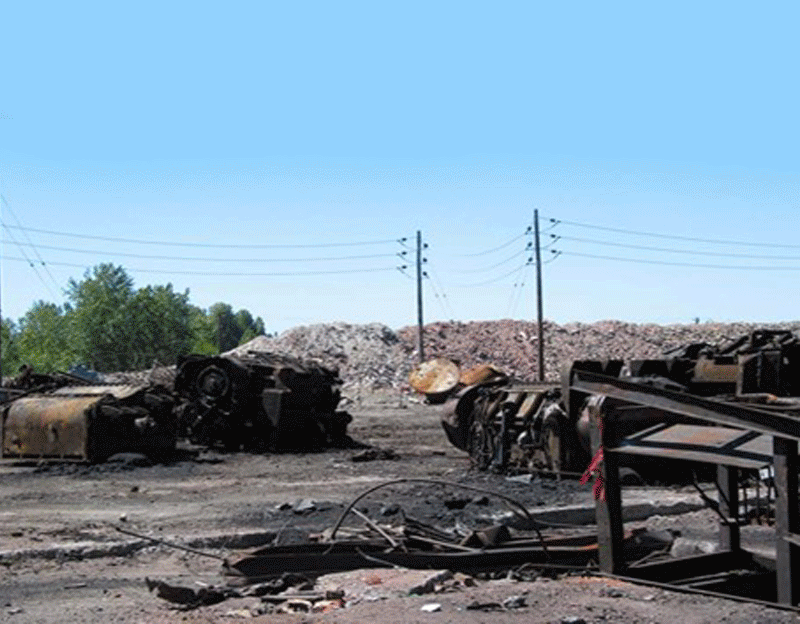
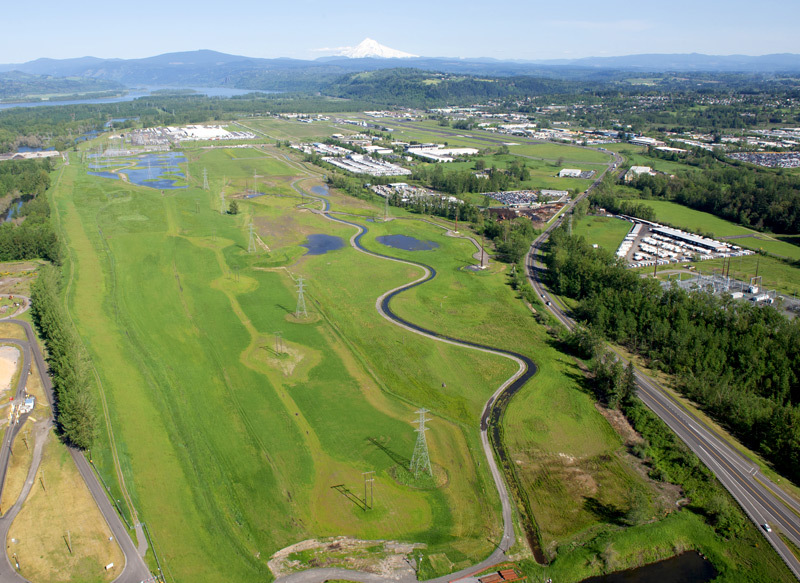
Land Stewardship
As the owner of thousands of acres across the Portland-Metro region, including over 900 acres of natural areas, the Port actively manages its lands for today and future generations. We implement long-term management strategies, collaborate with local, regional, and federal organizations to protect habitat for plants and wildlife, maintain and improve wetlands, and manage invasive species.
Waste Minimization
Our biggest opportunities to reduce Port waste are at PDX. The Green Plate Program provides reusable plates and utensils at some of our airport concessions with counter service, reducing the need for single-use plastic. We also provide assistance and support to concessionaires to help them reduce waste, including a composting program and a food donation program for surplus food items.
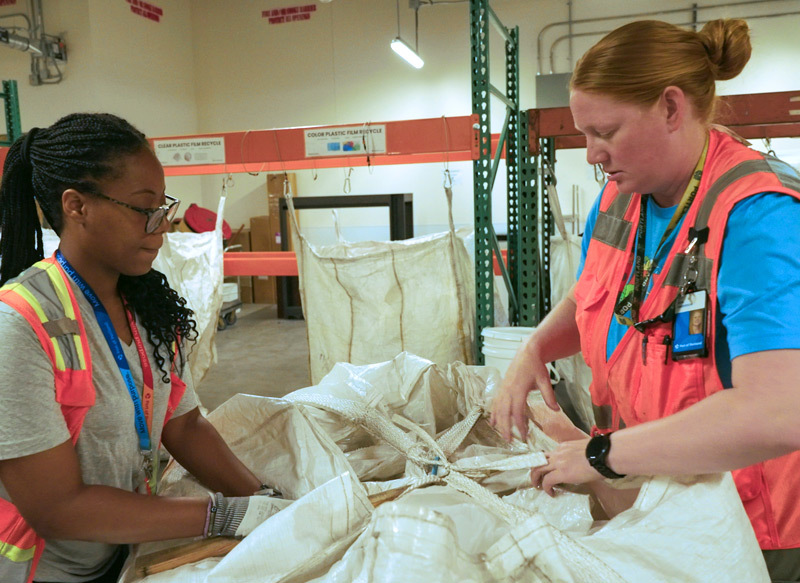
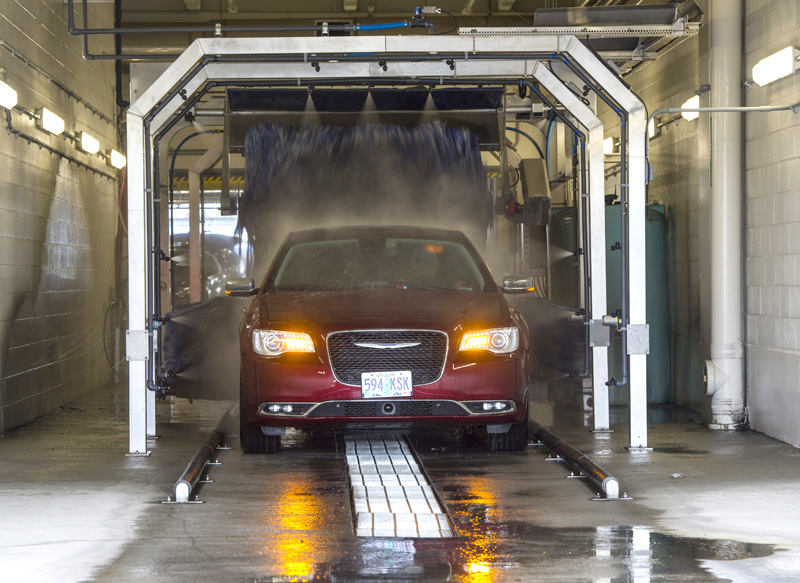
Water Management
Water is a critical resource for the Port, the community, and the environment. Port facilities are conserving water by using more efficient fixtures and switching to local non-potable sources for irrigation, washing, and toilet flushing. We’re also focused on reducing pollutants at the source and managing stormwater from our facilities to minimize the impact on our rivers.
Learn more about the Port’s water conservation work See how the Port is managing stormwater
Aviation Wildlife Management
PDX sits at the confluence of two major river corridors for resident and migratory birds. Our active airspace requires an adaptive program founded on scientific principles to minimize collisions between aircraft and birds. Our FAA-approved Wildlife Hazard Management Plan guides our approach and provides insights for other airports. The community can also play a role by logging observations to help us track red-tailed hawks and other raptors that have been tagged and, in some cases, relocated to safer habitats.
Read more about wildlife management Get involved at PDXRaptors.com

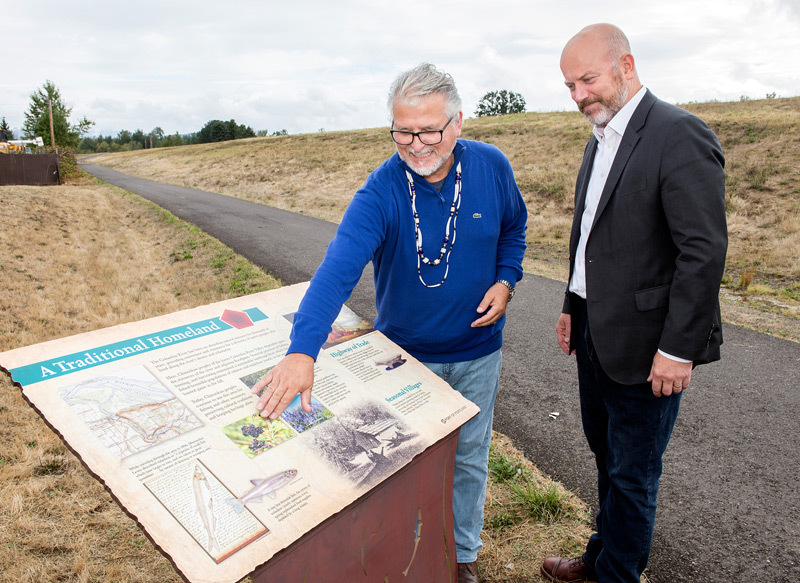
Cultural Resources
The Port operates on lands with a rich history. We work to honor this history and understand the significance of place by building relationships with tribes and community groups. We strive to preserve the history of these sites while continuing to carry out essential economic activity.
Learn About the Port’s Spill Program & Report Spills
Have you seen a recent spill or illicit discharge on or near Port property?